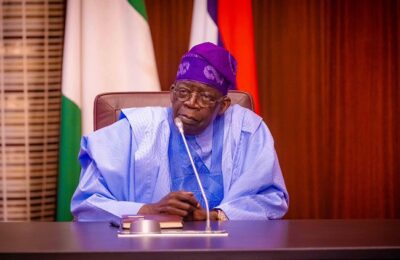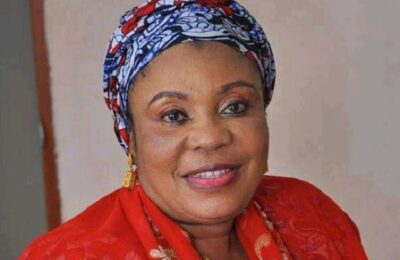On May 29, 2023, Nigerians gathered at Eagle Square in Abuja to witness the transfer of power from Muhammadu Buhari to President Bola Ahmed Tinubu.
During the inauguration, President Tinubu unexpectedly announced the immediate removal of fuel subsidies, a move that threw the nation into chaos. Filling stations, caught off guard, initially shut down, leading to long queues and a spike in fuel prices from N200 to N500 per litre.
Those who couldn’t wait in line resorted to the black market, paying over N1,000 per litre. The abrupt removal of the subsidy shocked even Tinubu’s staunchest supporters, who had not anticipated such a drastic move immediately after his inauguration.
The removal of fuel subsidies triggered a surge in commodity prices, particularly food, due to increased logistics costs and reduced disposable incomes.
The Stanbic IBTC Purchasing Manager Index reported that the spending power of individuals and companies was severely affected in June 2023, with Nigerians spending N3.05 trillion less on food and household items in the first half of the year.
The National Bureau of Statistics noted a rise in Nigeria’s annual inflation rate to 31.70% in February 2024 from 29.90% in January 2024.
In an attempt to address the economic turmoil, the Tinubu administration quietly resumed fuel subsidy payments without formal announcement. At a Stanbic IBTC Energy and Infrastructure session in March 2024, Rainoil CEO Gabriel Ogbechie revealed that the government was paying N600 billion monthly in subsidies.
Former Bauchi State governor Isa Yuguda confirmed these payments, aimed at alleviating the financial burden on Nigerians.
This raises the question: why was the subsidy removed if it was to be reinstated months later? This indecisiveness and lack of foresight have become hallmarks of Tinubu’s administration.
Tinubu’s political ambition has been evident for years. In June 2022, speaking to Ogun State APC delegates, he made his famous Èmi Lókàn (It’s My Turn) speech, asserting his pivotal role in Buhari’s 2015 victory and declaring his readiness to lead.
Tinubu’s journey to the presidency began long before this declaration, dating back to the end of his tenure as Lagos State governor in 2007. Unlike his peers who moved to the Senate, Tinubu stayed in Lagos, consolidating his political influence.
Tinubu’s strategic moves included fostering the growth of the Action Congress of Nigeria (CAN) and later playing a key role in the formation of the APC in 2013.
Although he was offered the vice-presidential slot by Buhari, Tinubu declined, recommending Yemi Osinbajo instead. His ambition culminated in his January 2022 presidential bid, which he described as a lifelong goal. However, one year into his presidency, Tinubu’s preparedness and decision-making abilities have been called into question.
**Policy Reversals and Uncertainty**
Tinubu’s administration has been marked by frequent reversals of key policy decisions, undermining confidence in his leadership. The withdrawal of Maryam Shettima Ibrahim’s ministerial nomination in August 2023, just days after it was announced, highlighted this trend.
Similarly, the revocation of Imam Kashim Imam’s appointment as chairman of the Federal Roads Maintenance Agency in October 2023, following public outcry over his lack of experience, further exemplified the administration’s haphazard approach.
The withdrawal of Ruby Onwudiwe’s nomination to the Central Bank of Nigeria’s board, allegedly due to her support for Labour Party’s Peter Obi, underscores the administration’s focus on politics over policy.
These decisions, often made without thorough consideration, have created a climate of uncertainty.
Tinubu promised economic reform, using his tenure in Lagos as a benchmark. However, his administration has struggled to deliver. The fluctuating naira, compounded by controversial policies like the arrest of Binance executives, has only exacerbated economic instability.
The introduction and subsequent suspension of a mandatory annual levy for companies employing expatriates and a 0.5% cybersecurity levy on electronic transfers further illustrate the administration’s unpredictable policymaking.
Supporters praise Tinubu’s responsiveness to public opinion, but experts warn that this unpredictability could deter investment and strain international relations.
Policy expert Jerrywright Ukwu notes that the administration’s erratic decisions undermine confidence and stability, essential for both domestic and international stakeholders.
One year into Tinubu’s presidency, the outlook remains bleak. The administration’s poorly conceived policies and frequent reversals have stalled Nigeria’s progress and eroded public and investor confidence. Without a more consistent and thoughtful approach, Tinubu’s leadership risks further destabilizing the nation.
– Abubakar Yunusa Ojima-Ojo, a freelance journalist, writes from Abuja.




